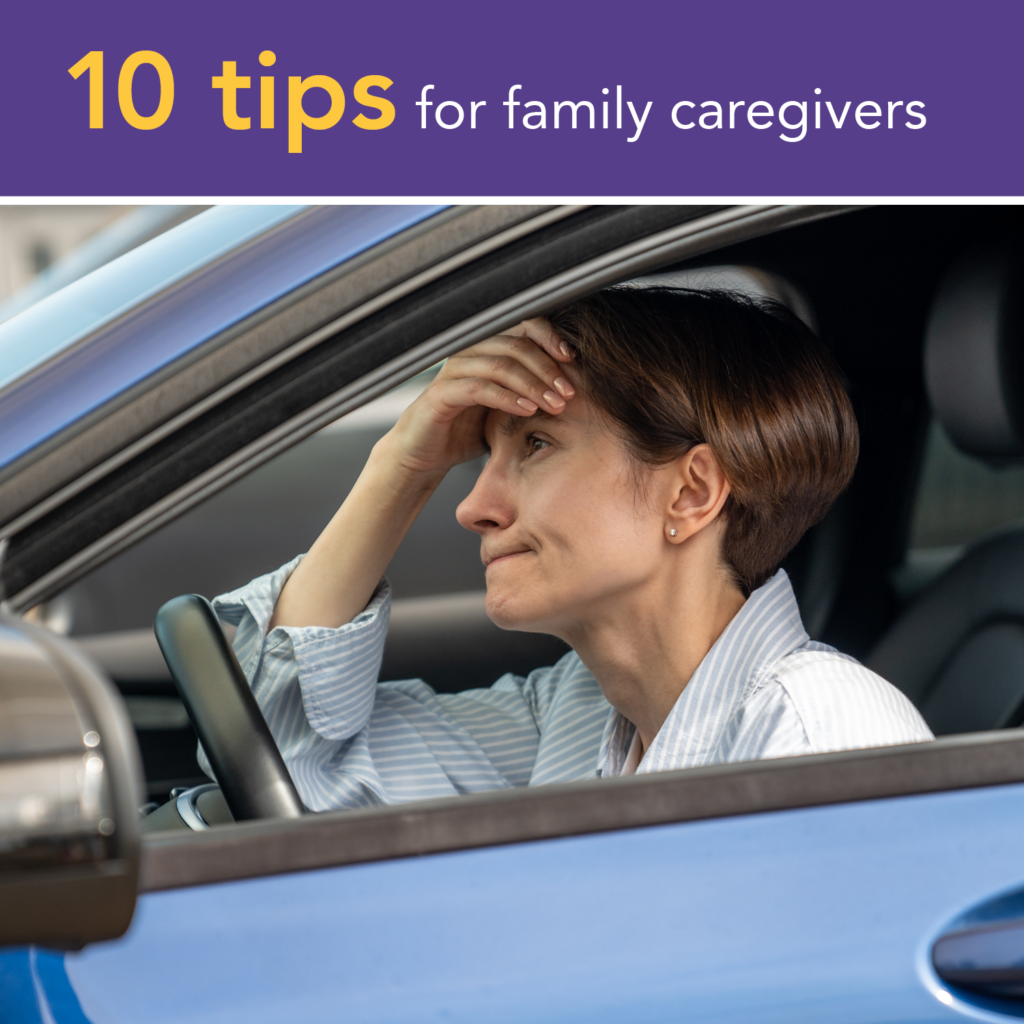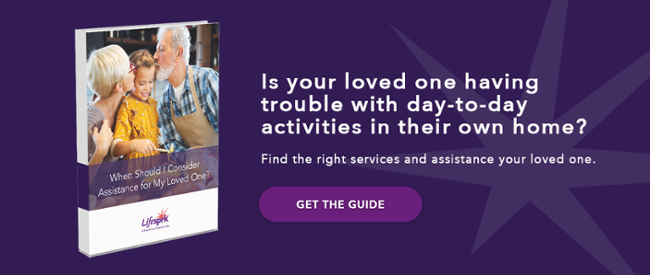
A number of years ago, I found myself getting irritated for the most trivial reasons—road construction, a badly parked car, a cashier-in-training. I was increasingly short-tempered at work and testy with my husband. And then one day, I couldn’t get out of bed.
That’s when a friend of mine suggested that maybe I was suffering from caregiver burnout. Not possible, I countered. Sure, I responded to my mom’s daily calls, took my parents on grocery runs, kept in touch with their doctors, and dealt with their increasingly frequent health crises. But my folks were still living independently, so clearly I was not their caregiver, a term I reserved for selfless people like my friend Laura who moved down to Iowa to care for her widowed father, or my friend Barb who brought her cousin with Alzheimer’s disease into her home.
Eventually, I came to understand that family caregiving can take many forms. If you help a family member with bathing, dressing, or medical needs, you are a caregiver. If you shop, cook, clean, or run errands for them, you are a caregiver. If you pay their bills, handle their insurance claims, provide companionship and emotional support, or arrange outside services, you are a caregiver.
And if you are a caregiver, you’re in great company. According to Caregiving in the U.S. 2020, a report by the National Alliance for Caregiving (NAC) and AARP, the number of Americans who provide unpaid care to at least one adult with health or functional needs is now at 5.3 million—up from 4.3 million just five years ago. As our population continues to age, that number will keep climbing
Download Free Guide: When Should I Consider Assistance for My Loved One?
Health Impact of Caregiving
None of this would merit much attention except for the fact that caregiving can take a toll on the health of the caregiver. According to the National Institutes of Health, caregiving has all the features of a chronic stress experience: it creates physical and psychological strain over extended periods of time; it’s difficult to predict or control; and it can negatively impact work, social life, and family relationships.
Those findings are consistent with the NAC and AARP study where one in five caregivers (21 percent) report that their health has suffered as a result of their caregiving responsibilities. Not surprisingly, one in four caregivers (23 percent) say that it’s difficult for them to take care of their own health.
Signs of Caregiver Burnout
It was hard for me to admit that I might be struggling with caregiver burnout. Afterall, I loved my parents and was grateful I could be there for them. But according to the Cleveland Clinic, I had at least four of the classic symptoms of burnout, which are similar to those of stress and depression:
- Increased irritability
- Withdrawal from friends and family
- Loss of interest in activities you once enjoyed
- Feeling blue, hopeless, and helpless
- Difficulty thinking or concentrating
- Changes in appetite or weight
- Disturbed sleep
- Getting sick more often
- Feeling like you want to hurt yourself or the person in your care
- Emotional and physical exhaustion
How to Manage the Stress of Caregiving
Fortunately, there are many excellent organizations that provide resources for caregivers, including AARP, Alzheimer’s Association, and Caregiver Action Network, which offers the following practical tips to help reduce the stress of caring for a loved one:
- Seek support from other caregivers
- Take care of your own health
- Accept offers of help and suggest specific things people can do to help you
- Take regular respite breaks
- Learn how to communicate effectively with doctors
- If you start feeling depressed, talk with a mental health professional
- Explore technologies like medication management apps and fall alert devices
- Organize medical information so it’s current and easy to find
- Get legal documents are in order
- Give yourself credit for everything you’re doing
In addition, family caregivers can enlist the help of home care experts, such as Lifesprk who offer a full range of whole-person senior services—home health, skilled nursing, primary care, life management, transportation, community resource connections, and hospice care. You can also download their free guide on ‘When to Consider Assistance.’ It may be time to get your loved one assistance so you can keep your health strong while also remaining their caregiver, and daughter.
Schedule a free consultation today and learn how Lifesprk can help you and loved one enjoy a happier, healthier, more independent life.



